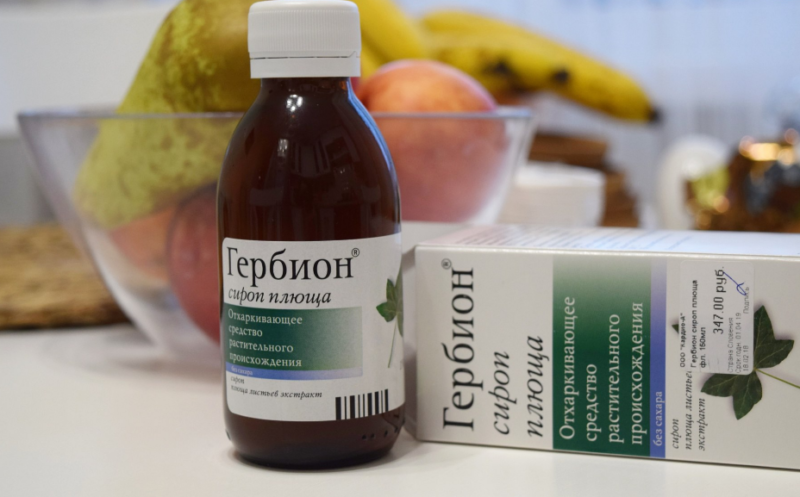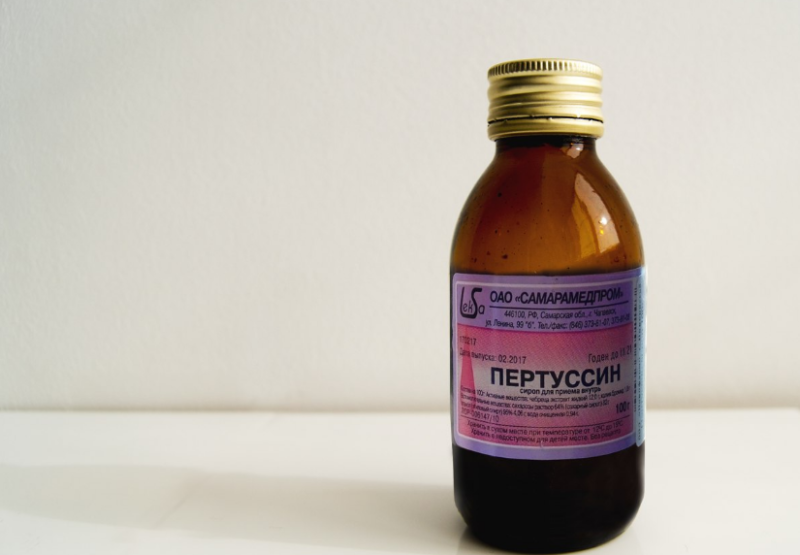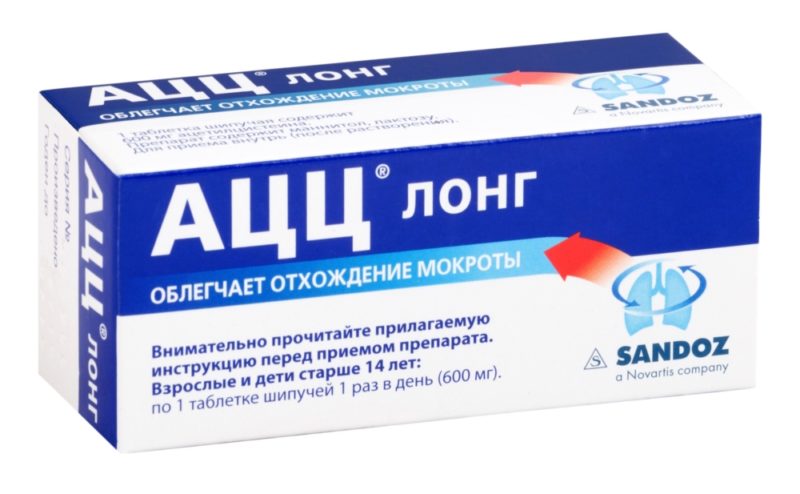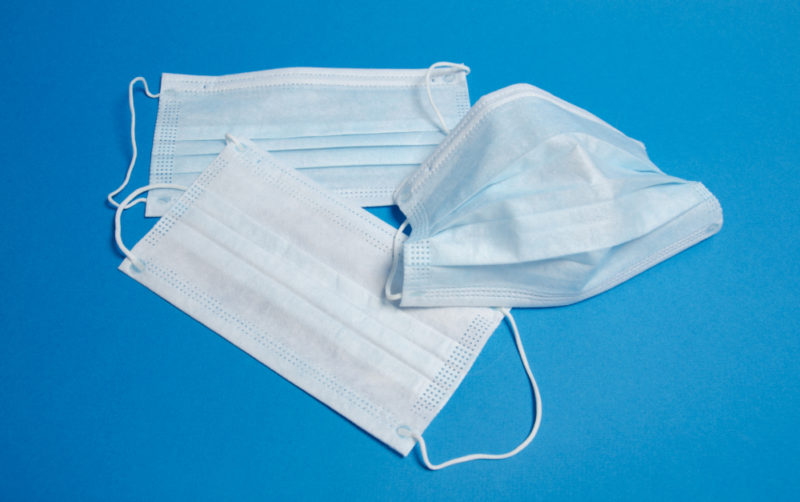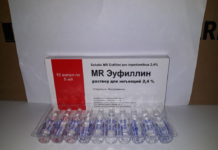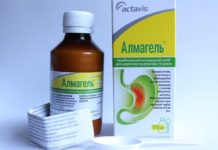Not many ladies can boast that during bearing a child they did not feel at least a slight discomfort associated with a cold. You can catch the virus both during hypothermia, and when visiting the hospital during the next examination. Today we will consider the question of how to treat a cough during pregnancy, we will learn about safe medicines and those that should not be taken by expectant mothers.
Material Content:
What is the danger of coughing during pregnancy, and how it affects the fetus
Everyone knows that coughing is not a separate disease, but only indicates the development of a disease. It can be either an infectious disease or an allergy caused one. In the usual state, the symptom worries us a little, but for pregnant women and the fetus, this phenomenon poses a real threat.
Reasons why you need to get rid of cough in record time:
- During coughing, the abdominal muscles tighten, which leads to tone the uterus. Under such circumstances, the body can not stand and spontaneously get rid of the fetus.
- During attacks, the body consumes less oxygen, and it reaches dangerously small doses to the baby. It threatens fetal hypoxia.
- If the cough is barking, wheezing is felt, it is necessary to exclude whooping cough. When confirming the diagnosis, the question of abortion will arise.
- A strong cough during pregnancy in the later stages greatly strains the uterus, therefore, the discharge of water or detachment of the placenta is possible. All this is fraught with premature birth.
If a sore throat becomes not just an unpleasant symptom, but also causes a cough, you should immediately visit a doctor.In no case should you buy medicine on your own or use traditional medicine. Both that, and another can appear dangerous to a fetus, contraindicated during pregnancy at a certain term or in general. Only the doctor will prescribe the appropriate therapy, and therefore consultation with him is extremely important.
Treatment at different times
You need to treat cough during pregnancy in the 3rd trimester and in the early stages in different ways. Let's talk about the rules for selecting drugs and additional procedures for each stage of gestation.
1 trimester
Until the fourth month, the fetus is actively formed, but it still does not have its own protection, so exposure to any chemical agents is highly undesirable.
In the first trimester, the doctor will recommend the following treatment:
- Gargling with decoctions of herbs, soda and salt. Plant components and an alkaline environment prevent the spread of infection through the respiratory tract, killing most pathogens in the throat, palate and larynx.
- Inhalation over steam or with a nebulizer. Salt, soda and herbal decoctions are also used. Together with the steam, plant microparticles and alkali penetrate the respiratory tract and fight bacteria.
- If you can not do without medications, then the doctor will give a prescription for the purchase of herbal medicines. This can be Herbion, Mukaltin, Doctor Mom, licorice or marshmallow root syrup and similar cough syrups for pregnant women.
In extreme cases, if the cough is not amenable to ongoing therapy, the doctor may recommend a course of the drug of synthetic origin. The safest at this time is Libexin.
In addition to fighting the cough itself, you need to get rid of its cause, whether it is a viral disease or an allergy.
Only a doctor will prescribe antiviral, antibacterial and antiallergic drugs. It will not be superfluous to take a vitamin complex, which is needed to maintain immunity.
2 trimester
Treatment in this period differs little from that shown in the previous trimester. But here you can already apply a wider range of synthetic drugs.
The doctor's recommendations may be as follows:
- Gargling 3 to 6 times a day. Used infusions of herbs, soda and saline solutions.
- Inhalation is only a nebulizer, since exposure to high temperatures can lead to bleeding from the uterus.
- The following drugs are used: Pertussin, Herbion (choose the type of cough syrup), Mukaltin, Libexin, Bronchipret, Sinecode, Omnitus (for pregnant women - cough syrup, but not tablets) Tussin.
Any of the prescribed medicines may be prescribed by a doctor, do not resort to self-medication.
3 trimester
In the last months of pregnancy, the baby has already formed its own protective environment, which does not allow the negative effects of many synthetic drugs. But still you can’t use something that can do any harm. At this stage, the treatment is the same as in the second trimester.
At any time, additional procedures such as mustard plasters, warming up legs, and hot baths are prohibited. All this threatens a miscarriage and premature birth.
Physiotherapeutic treatment of cough
Physiotherapeutic procedures respond well not only to dry cough during pregnancy, but also to wet. There are procedures that cannot be performed categorically, and those where important rules must be followed.
What physiotherapy should pregnant women refuse:
- the use of mustard plasters and cans;
- radiation exposure;
- steam baths for the feet, taking hot baths;
- electrotherapy.
A safe procedure that can be done at home is inhalation.
If you decide to use this method, you need to remember the following rules:
- You can breathe over the steam, covered with a blanket, only in the first trimester. From the second, a nebulizer is used.
- Inhalation is not carried out if the body temperature is elevated, and you can breathe in pairs for no more than 10 minutes per session (a total of 3-6 per day is allowed).
- The temperature of the liquid for use in inhalation is within 40 degrees.
- Do not eat food half an hour before and after the procedure.
Consider the most effective means for treating the respiratory tract.
So, the following compounds will help to quickly get rid of cough:
- Sage 2 tbsp. l brew a glass of boiling water. Cool to an acceptable temperature.
- For 1 liter of boiling water, brew 1 tbsp. l eucalyptus and 0.5 tbsp. l grated garlic. Use after reaching a comfortable temperature.
- Baking soda in an amount of 2.5 tbsp. l dilute in a liter of water with a temperature of 40 degrees. You can use 1 to 1 with salt.
Gargling is also welcome:
- A glass of warm water with 1/2 tsp. baking soda.
- A mug with a volume of 200 ml of boiling water + 4 - 5 leaves of plantain. Brew, cool to an acceptable temperature.
- In a glass of boiling water, take 1 tbsp. l pharmacy chamomile, cool.
- 200 ml of hot water will require 2 tbsp. l linden flowers.
Pregnant women can rinse 5-6 times a day, not only with an existing cough, but also after each stay in a crowded place. So you can prevent the development of infection.
List of drugs contraindicated in any month of pregnancy
Why can’t you choose your own medicines and herbal remedies for coughing in pregnant women? First of all, because many substances are contraindicated in the fetus, they can provoke a miscarriage or disrupt the development of the child.
List of drugs prohibited to pregnant women:
- "Glycodin";
- “ACC”;
- Codelac
- "Terpincode";
- "Flux";
- "Thermopsis";
- "Alex +";
- "Travisil";
- Ascoril;
- "Antigrippin-ANVI";
- "Joset."
This is not the whole list. If there is doubt about the possibility of using the medicine, be sure to talk additionally about the advisability of such therapy with a doctor.
Prohibited Plants:
- ivy;
- echinacea;
- ginseng;
- rosemary;
- sage;
- anise;
- elecampane;
- violet;
- St. John's wort
- pine buds;
- oregano.
Since herbs can harm a baby, you need to carefully read the composition on the package with cough charges.
Folk remedies for cough
There are simple and affordable methods of treating cough with folk remedies. Consider those that everyone can do just by looking in their refrigerator.
- Honey. This beekeeping product is a very effective remedy for any type of cough. Resorption of honey in its pure form for 1 tsp. three times a day will help get rid of sputum with a wet cough. Do not use the product when dry, because the throat will be even more irritated. If there is no sputum, and dry seizures torment you can rub your chest, neck and back with honey at night.In the morning, do not grind any, if you may need to go outside. The procedure provokes the expansion of the bronchi, which, when cold air enters them, will respond with a spasm, which will worsen the general condition.
- Heated milk can be drunk both in pure form and with additives. A simple drink softens the throat with a dry cough, reduces the number of seizures. Milk, diluted 1/1 with mineral water, promotes the elimination of sputum. Take a mineral water without gas, so as not to irritate the throat, and not cause bloating.
To disinfect the room, it is recommended to place chopped garlic and onions in plates in rooms. Vapors of juice penetrating the respiratory tract, and there will fight against viruses.
Prevention of ailment
Still, coughing is easier to prevent than to cure, especially for pregnant women.
To avoid attacks, it is recommended to observe the following rules:
- In the cold season, do not subject the legs, neck and head to hypothermia. If you feel that you’ve frozen, cover yourself with a blanket as soon as possible, drink warm tea from herbs or milk.
- Hand washing, gargling and rinsing of the nose are mandatory procedures after walking, shopping, clinics and other crowded places.
- A medical mask protects the airways from dust, viruses and bacteria. Wear it every time you leave your home in the summer, in the hospital, transport, at work, in the supermarket.
- A full and varied menu will enrich the body with vitamins, nutrients and strength.
- Drink vitamins, mineral preparations throughout the course of pregnancy.
Tobacco should also be abandoned, at least for the period of gestation. Irritated by nicotine, the lungs constantly need to be cleaned, and smokers cough stably because of this.
Take care of yourself and your baby. Follow the recommendations of the obstetrician and therapist, do not resort to self-medication, because an improperly selected remedy can not only harm the fetus, but aggravate the course of the disease.



